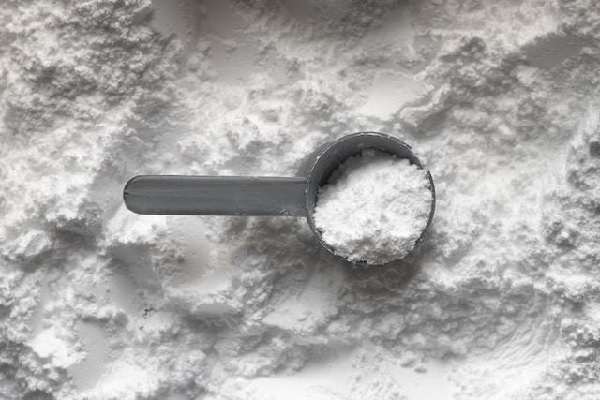Positive Health Online
Your Country

7 Side Effects When You Stop Taking Creatine
listed in exercise and fitness, originally published in issue 291 - January 2024
For gym-goers and fitness enthusiasts, creatine is an inevitable part of their supplement regimen. It's been shown to pump up energy levels and aid with muscle recovery, but have you ever stopped to think about what happens when you stop taking it?
Whether it be a conscious decision or just simply forgetting to restock on your next supply, many don't know the effects that come after stopping creatine consumption.
This article looks at different scenarios in which ceasing the use of the supplement can lead to consequences – both short-term and long-term – and offers alternative options for restoring normal energy levels.
What are the Side Effects of Stopping Creatine?
Understanding the common side effects of discontinuing creatine intake is crucial for maintaining knowledge about your body's response.
Loss of Muscle Strength
Photo by Victor Freitas on Unsplash
Here, you can gain insight into the typical reaction.
1. Loss of Muscle Strength
Since creatine helps to improve performance and endurance while exercising, it makes sense that ceasing the use of this supplement can lead to a decrease in muscle strength.
But why does this happen?
The reason for the dependence on creatine is due to its mechanism of action in the body. When used, creatine aids in the production of ATP, which is the main fuel for muscle contractions.
Thus, if one stops taking creatine, the body loses its additional energy source, resulting in a decrease in strength.
2. Fatigue
It is important to note that fatigue is a common side effect when you stop taking creatine.
This is because creatine levels within the body may decrease, leading to a reduction in energy levels and increased feelings of tiredness.
While the fatigue experienced after stopping creatine is typically temporary and should resolve within a few weeks, it is important to be mindful of this potential side effect and adjust your exercise routine accordingly.
Adequate rest and proper nutrition can help mitigate the effects of fatigue and ensure that you continue to make progress toward your fitness goals.
Effects of Fatigue
Photo by Annie Spratt on Unsplash
3. Water Loss
When individuals begin creatine supplementation, it is not uncommon for them to experience a noticeable increase in their weight due to holding onto water weight.
However, when they stop taking creatine, this excess water weight can quickly disappear, resulting in potential water loss.
While this may seem like a benefit to some, it is important to understand that this water loss can affect muscle size and overall physical appearance.
Additionally, it is important to note that water loss can also lead to dehydration if not properly monitored and addressed.
Therefore, it is important to carefully consider the potential side effect of ceasing creatine supplementation and take care of your water consumption.
4. Loss of Muscle Mass
While creatine can be effective in promoting muscle mass, it's important to note that stopping creatine intake can lead to a loss of muscle mass.
This is because creatine promotes water retention in muscle cells, leading to an increase in muscle size.
Without creatine, muscles may lose some of that water weight and appear to shrink in size.
It's important to approach creatine supplementation with a well-informed plan and to understand that any gains made may only be sustained with continued use.
Decrease in Natural Creatine Production
5. Decrease in Natural Creatine Production
A decrease in natural creatine production occurs as a side effect when one stops taking creatine.
This reduction can result in a drop in muscle strength and size, ultimately reversing the gains achieved through creatine supplementation.
Studies have shown that it can take up to four weeks for natural creatine levels to return to normal after discontinuing creatine intake.
Therefore, it is important for individuals who cease creatine intake to be aware of this potential effect and maintain a healthy and consistent workout routine to prevent muscle loss.
Creatine Monohydrate Withdrawal
Photo by Bret Kavanaugh on Unsplash
6. Withdrawal
I understand that the phrase "creatine monohydrate withdrawal" may sound alarming and give the impression that creatine is a dangerous substance.
However, I would like to explain further.
Your body stores creatine mainly in your muscles, but a portion of it is also stored in your brain.
Studies indicate that maintaining optimal levels of creatine may have potential benefits for short-term memory and cognitive reasoning.
When you stop taking a creatine supplement, it may take some time for your brain to adjust since it becomes accustomed to relying on it, similar to how muscles adjust to consistent use.
You might feel mentally tired for a short period until your body restores its natural creatine production.
This is expected to be temporary and should last for about two weeks before returning to normal levels of creatine.
7. Reduced Energy on Workouts
The energy-storing form of creatine known as phosphocreatine is stored in your muscles to help produce adenosine triphosphate (ATP).
ATP serves as the energy currency in the body, contributing to improved exercise performance.
When phosphocreatine levels increase due to creatine supplementation, ATP resources also increase, increasing performance energy.
If we stop using creatine, our creatine stores decrease, and this results in a reduction of ATP which leads to less energy resources in muscle tissue.
As a result, exercising may require more effort due to the decreased energy.
Reduced energy can be related to other changes that occur when creatine intake is stopped.
Should You Stop Taking Creatine?
If you've been taking creatine supplementation regularly, you might be wondering if it's time to stop.
While there isn't a simple yes or no answer to this question, it's important to consider a few key factors.
- For one, if you've been taking creatine for an extended period and are no longer seeing the benefits you once did, it might be time to take a break;
- Additionally, if you're experiencing any negative side effects from taking creatine, it's worth considering stopping as well;
- It's important to remember that creatine supplementation is not for everyone and should always be taken in consultation with a healthcare professional;
- Ultimately, the decision to stop taking creatine is a personal one and should be based on your own unique needs and goals.
Bottom Line
In conclusion, it is important to understand the potential side effects of ceasing creatine supplementation.
Possible side effects include water loss, fatigue, muscle mass loss, decreased natural creatine production, and mental withdrawal symptoms.
When considering whether or not to stop taking creatine, it is essential to consult with a healthcare professional and take into account your own goals and needs.
Additionally, adequate nutrition and rest can help mitigate the effects of stopping creatine supplementation.
By understanding these potential side effects, you can make an informed decision about whether or not to start taking creatine.
FAQs
- Is it OK to Suddenly Stop Taking Creatine?
It is generally recommended to gradually reduce the amount of creatine taken over time.
Suddenly stopping after taking creatine for an extended period may lead to side effects such as muscle mass loss, decreased natural creatine production, and mental withdrawal symptoms.
It is best to consult with a healthcare professional before making any changes to your supplement regimen. - What Happens If I Miss 3 Days of Creatine?
If you miss three days of creatine, your creatine levels will begin to decrease.
This may lead to a drop in performance energy and muscle strength, as phosphocreatine stores are reduced.
It is best to consult with a healthcare professional before making any sudden changes to your supplement plan. - How Long Does it Take Creatine to Go Down When You Stop Taking It?
It can take up to four weeks for natural creatine levels to return to normal after discontinuing creatine intake. During this time, it is essential to maintain a healthy and consistent workout routine to prevent muscle loss.
Additionally, adequate nutrition and rest can help mitigate the effects of stopping creatine supplementation.
Comments:
-
No Article Comments available



